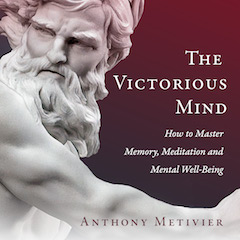In the spring of 2017, I found myself standing at the precipice of a profound personal transformation – thanks to learning a special Advaita Vedanta meditation.
Little did I know that this courageous decision would unravel the layers of illusion and open the gateway to a world of profound interconnectedness.
As I immersed myself in the teachings of Advaita Vedanta, the concept of nondual contemplation seized my attention like a beacon in the very dark night of my many mental health issues.
Not only that…
I was (and still am) an online entrepreneur in a digital world that still feels like the Wild West.
Sometimes that’s a good thing, but often the work of saying useful things in a world increasingly dominated by an “Eternal Present” of entertainment and marketing makes you feel separate and alone.
That’s just one of the reasons the promise of experiencing nondual awareness is so strong. If separation or judgment arises, nonduality says that’s just part of the game. There’s nothing to sniff at or complain about because the philosophy is fairly convincing that our likes and dislikes are actually unified at their core.
But sometimes the philosophy mythologizes this idea. For example, check out the 50th verse of the Atma Bodha:
After crossing the ocean of delusion and killing the monsters of likes and dislikes, the Yogi who is united with peace dwells in the glory of his own realised Self – as an Atmaram.

James Swartz translates this a bit differently: he calls the beast in the ocean the “like/dislike monster. The result of defeating it is “unconditioned peace.”
No matter how you translate this or that phrase, the Advaita Vedanta philosophy is fairly tight, surprisingly consistent and maps onto the proto-Existentialist conclusions of people like Giordano Bruno, Nietzsche and many philosophers of pure immanence.
Does it really unveil the eternal truth that lays dormant within each and every being? I have no idea, but since consciousness is here, I yearn to explore the depths of my existence, to transcend the confines of my ego, and to merge with the vast cosmic tapestry that the gurus say is “dancing” in every breath of life.
All well and good. But what is Advaita Vedanta anyway?
And what does it offer to those interested in mindfulness, better memory and overall self-improvement?
Let’s explore the intricate tapestry of Advaita Vedanta, where the boundaries of self dissolve, and you can experience the meaning of oneness in all its breathtaking splendor.
What Is Advaita Vedanta Meditation?
According to James Swartz in several of his books, you don’t have to meditate in order to enjoy experiences of nonduality. But as he points out in his translation and commentaries on the Atma Bodha, it helps.
In order to understand how to meditate based on this philosophy, let’s first discuss how this form of self-inquiry and self-reflection is broadly defined.
Advaita Vedanta is a profound philosophical and spiritual tradition originating from ancient India. Rooted in the ancient texts known as the Upanishads, Advaita Vedanta explores the nature of reality and the ultimate truth of existence. The term “Advaita” means non-dual or “not two,” emphasizing the essential oneness and interconnectedness of all things. “Vedanta” refers to the end or culmination of the Vedas, which are the sacred scriptures of Hinduism.
One Ultimate, Unchanging Reality
The concept of non-duality asserts that there is only one ultimate reality, often referred to as Brahman. Change is not possible, because if something changes, that would mean at least two things exist: the thing before and the thing after.
This philosophy can warp the mind a little, but even if it isn’t true, the mental exercise is worth it.
The Concept of Brahman
As an image of ultimate reality, Brahman is considered to be formless, infinite, and beyond the limitations of time, space, and individual identity. Advaita Vedanta posits that the apparent diversity and multiplicity of the world is an illusion, and the true nature of reality is unchanging and undivided.
According to Advaita Vedanta, the individual self, known as the jiva, is not separate from Brahman but an expression or manifestation of it.
But due to ignorance (avidya), individuals perceive themselves as separate entities, leading to suffering and the cycle of birth and death. The goal of Advaita Vedanta is to realize one’s true nature as Brahman and transcend the illusion of individuality.
Advaita Vedanta offers various means to attain self-realization, including philosophical inquiry, meditation, self-reflection, and the guidance of a qualified spiritual teacher (or guru). Self-inquiry, known as “atma-vichara,” involves questioning the nature of the self and investigating the source of your true identity. Through deep contemplation and introspection, the theory says that you’ll recognize the illusory nature of the ego.
Once that happens, you’ll directly experience the non-dual nature of reality.
Here’s Where Memory-Based Meditation Comes In…
Some people say that atma-vichara means self-inquiry. But Ira Schepetin and others have pointed out that the term is probably better translated as “self-remembering.”

As discussed in The Victorious Mind, you can memorize Sanskrit meditations that help you remember a variety of self-inquiry, or self-remembering questions. Gary Weber provides perhaps the best possible Advaita Vedanta meditation source in his books Happiness Beyond Thought and Evolving Beyond Thought.
Long story short, you memorize a list of self-inquiry questions, such as:
- Are my thoughts useful?
- How do my thoughts behave?
- Who am I?
- What am I?
- Where does the concept that I have a “body” come from?
- Am I really separate from others?
- Where does the sense of different bodies come from?
- Where does the idea that the world exists come from?
- Where does the concept of a mind come from?
I shared the impact these questions had on me in this TEDx Talk:
As you can tell, I think the small amount of effort it took to memorize these questions was well worth it!
How To Perform An Advaita Vedanta Meditation
There are a few ways that I’ve recited the memorized self-inquiry questions.
- Sitting meditation with chanting
- Sitting meditation with silent recitation
- Walking meditation and other movement meditations
- Reflecting on the meaning of the philosophy throughout the day
As you perform these meditations on the exact words of Advaita Vedanta texts, you will be engaged in nondual contemplation.
Nondual Contemplation Defined
Nondual contemplation lies at the heart of Advaita Vedanta meditation. It invites practitioners to delve into the depths of their being, which is defined as being connected with everything. Completely without separation.
The idea is that you can transcend the limitations of the egoic mind and embrace the boundless nature of consciousness. Some say that you will learn to shift your focus from the external world to the inner realm, where the true self resides. But this is where things get tricky because the idea of a true self suggests duality: the true and the untrue.
Beware of people who talk like that. They are not playing out the nondual implications of the philosophy. If it means one, not two, then there is no true self. All of it is “self.”
To release yourself from the illusion of duality, practitioners often engage in self-inquiry. This practice typically starts with an incredibly potent question:
“Who am I?”
This inquiry serves as a catalyst for introspection and self-reflection, unraveling the layers of conditioning and false identifications. By repeatedly probing into the nature of the self, you come face-to-face with the realization that the essence of your being transcends the limited boundaries of body and mind.
At least, that’s the theory. If you play with it and have fun, it has many merits. But taken too seriously, it can potentially have negative effects, or at least startling ones.
This is one reason why institutions like Cheetah House were formed. Some people fall into what is called a “dark night of the soul” or an emotionless landscape.
For myself, as the practice of Advaita Vedanta meditation deepened, I became increasingly aware of the illusory nature of my ego and its incessant stream of thoughts. Through sustained focus on the Sanskrit I memorized, I became detached, but ultimately not emotionless. The mind gradually became more still, and this allowed a blissful experience of underlying silence and spaciousness of consciousness to emerge.
For best results, it’s useful to memorize the Sanskrit that contains the core of nondual philosophy for yourself. The ones I’ve memorized are:
- Gary Weber’s Ribhu Gita extract in Evolving Beyond Thought
- Upadesa Saram
- Nirvana Shatakam
- Parts of Song Celestial
- Parts of Atma Bodha
To take your development further, consider comparing these aspects of Advaita Vedanta with Zen and its many similar contemplation practices. They will also help you experience nonduality and the many benefits of self-observation and self-awareness.
Liberation And Enlightenment
One of the key benefits of Advaita Vedanta Meditation is liberation from problems like anger that only mindfulness can resolve.
But what is enlightenment?
When your standard guru defines it, you usually hear or read statements like this:
- Enlightenment is a state of profound understanding and awareness that surpasses ordinary perception.
- It involves realizing one’s true nature and recognizing the inherent oneness of all existence.
- Enlightenment transcends suffering and liberates individuals from the constraints of the egoic mind.
- It brings about a deep sense of peace, contentment, and interconnectedness.
- Enlightenment involves perceiving the world with clarity and seeing beyond superficial appearances.
- It is an ongoing process of self-discovery, personal growth, and integration as you experience your best self.
- Each individual’s path to enlightenment is unique, and the journey unfolds throughout their lifetime.
James Swartz and others have called BS on almost all of these statements. I do too. A lot of them are deepities at best.
According to Swartz, consciousness is enlightenment. Period. If you’re here, you’re enlightened.
And this makes sense when you read and contemplate on the philosophy. As the Atma Bodha’s fourth verse says:
The Soul appears to be finite because of ignorance. When ignorance is destroyed the Self which does not admit of any multiplicity truly reveals itself by itself: like the Sun when the clouds pass away.
This passage suggests that the direct experience of the Self (or Brahman) comes not from becoming something other than you are. It’s simply a matter of realizing that you are made of the same stuff you often feel separate from.
A Philosophical Trap?
But hang on!
If there is no separation and you’re made of the stuff of everything… doesn’t that mean that you are also ignorance?
Yes, and this is Advaita Vedanta’s way of addressing issues like free will and human agency.
Long story short: you haven’t got any.
Some people will balk at this idea, and in that struggle, they tend to give up much inner peace and harmony.
The dissolution of the ego is hard, but the point Advaita Vedanta makes is simply that if you can’t see it… it’s not your fault. You’re not separate from the whole, and there’s no explanation for why this jiva (person) and not that one gets it. Things are just the way they are.
The Guru-Disciple Relationship In Advaita Vedanta
One area where I disagree with people like James Swartz is the idea that you need a teacher in order to experience liberation.
Sometimes called moksha, the idea that you need a teacher to set you free makes no sense. When everything is connected and there is no separation, everything and everyone becomes your teacher.
Now, I’m not saying that teachers aren’t useful. Rather, I’m combatting the idea that you need a personal guide. The Advaita Vedanta tradition contains the idea that the Vedas were “revealed” to humans, which suggests people have understood these matters without needing a teacher.
In memory training, Giordano Bruno said that anyone who thinks long and hard enough about the nature of information will arrive at the same conclusions about how to use mnemonics. I think when it comes to this philosophy, it’s pretty much the same.
Sure, real human teachers can help. But necessary? Not necessarily.
Criticisms Of Advaita Vedanta Meditation
Apart from the guru-disciple notion, there are a number of other criticms of Advaita Vedanta worth considering.
Note that I don’t think any of them invalidate the philosophy of contemplative nature of this realm of thought and practice. But they’re worth considering.
Incomprehensibility
One common criticism of Advaita Vedanta is that its teachings can be highly abstract and intellectually challenging for many individuals. The concepts of non-duality, the illusory nature of the ego, and the ultimate reality of Brahman may be difficult to grasp and reconcile with everyday experience, leading some to find the philosophy inaccessible or impractical.
Zen practices often get this criticism too. I believe it’s possible that such practices evolved especially for intellectual people who are so busy using logic and thinking all the time, they wind up creating unnecessary suffering.
If this thesis is true, then the incomprehensibility of the intellectual puzzles are a feature, not a bug. They are the mental equivalent of giving a cat yarn to play with, which is a delightful thing and not bad at all.
Lack of Empirical Evidence
Advaita Vedanta is rooted in subjective experience and relies heavily on personal realization and direct perception. Critics argue that the philosophy lacks empirical evidence to support its claims about the nature of reality, consciousness, and self. Some skeptics question the validity of subjective insights and advocate for a more scientifically verifiable approach to understanding the nature of existence.
The problem with this criticism is that using self-inquiry is itself scientific. In fact, the Ribhu Gita states that self-inquiry is the highest science. I believe this is true because:
- We ask questions based on the hypothesis that they will help us achieve nonduality
- The questioning process supplies evidence that either confirms or denies this hypothesis
If that isn’t science, I don’t know what is.
Passivity and World Negation
Another critique of Advaita Vedanta is that its emphasis on transcending the world and realizing the illusory nature of phenomena can be interpreted as promoting passivity or a tendency to withdraw from worldly responsibilities. Critics argue that this worldview may undervalue the importance of active engagement with society and the pursuit of social, environmental, and humanitarian causes.
Yes, this can happen. As I mentioned, organizations like Cheetah House exist to help people who might Vedanta themselves out of leading a normal life.
But compared to the negative outcomes of social media, this criticism can be valid and a misplaced energy at the same time. Or not. It’s true that from a Vedantic perspective, the criticism doesn’t matter because it’s not divided from anything else. It’s just emerging as part of the whole.
Intellectual Elitism
Advaita Vedanta has traditionally been associated with a select group of intellectuals, scholars, and monastic practitioners. Critics claim that this exclusivity and the complex nature of its teachings may create a perception of elitism, making it inaccessible to the broader population.
This is basically the incomprehensible issue looked at from a different angle. But in this case, the criticism is valid and important. Some people certainly do lord their understanding of this over others.
In fact, as much as I like Swartz, in his How to teach Advaita Vedanta series, he literally says there are things you shouldn’t tell people learning the philosophy because they won’t understand it.
If that isn’t intellectual elitism, I don’t know what is.
Personally, I’ve always tried to avoid such stances because I literally don’t know who knows what and who doesn’t. To judge others in advance is the opposite of teaching in my view.
By the same token, if Advanta’s implications are correct… so what? Someone is an elitist…
Great! Your ability to perceive this fact is really nothing more than evidence that you’re connected to it. After all, how could you perceive the elitism if there wasn’t a relationship inherently in place, in the same way that a key cannot open a lock without some kind of unity between them.
Potential for Misinterpretation
Like any philosophical or spiritual system, Advaita Vedanta is susceptible to misinterpretation and misapplication. Andrew Cohen is one of several gurus who not only deeply misunderstood the teachings. He also reportedly abused his students. There are tons of stories like this and none are excusable.
But nondual philosophy does have a hard time accounting for any notion of purity or authenticity when such situations arise. If all is one, then we’re back to the lock and key situation of some kind of unity.
Vedanta has the potential to be useful in this regard because it can expose the human piece of the cosmic puzzle for what it is: animal. But many people prefer the cuddly feelings of a religious interconnectedness. And that preference itself suggests a misinterpretation of what the founding texts of Advaita Vedanta are telling us.
Self-Realization And Advaita Vedanta Meditation
All of these criticisms and considerations aside, self-realization is a worthy goal. And in my experience, it’s possible, especially when you’re willing to embrace the uncouth aspects that come along with any school or philosophy.
At the end of the day, I still practice this form of meditation, but stand with Nietzsche who ultimately dismissed it in Beyond Good and Evil. He also out Vedanta’s Vedanta in Also Sprach Zarathustra when he demonstrates the primacy of the body and the brain as the producer of consciousness, anticipating current materialist science.
Nonetheless, practicing self-realization leads to enjoying a state beyond mere intellectual understanding, one that seems to give you an experience of the essence of existence itself. (Heavy emphases on “seems”).
The point:
Advaita Vedanta teaches that the individual self (jiva) is not separate from the ultimate reality (Brahman). Instead, you are an expression or manifestation of oneness.
Logically, this idea can make sense, especially if you consider non-classical logics like Graham Priest explains in his books, especially One.
But as the great Canadian band Nomeansno put it on their song 0+2=1, “sometimes nonsense is better than no sense at all.” Riddling through the nonsense definitely gives the brain a good workout and its no wonder you can feel more peaceful after engaging in serious meditation of this kind.
Here’s another important point:
Self-realization as experienced through Advaita Vedanta meditation is not a “goal” to be attained in the distant future. It’s meant to be a continuous unfolding of understanding and integration. It involves an ongoing process of deepening awareness, shedding false identities, and aligning with the truth of one’s being. As self-realization deepens, it transforms every aspect of life, bringing clarity, compassion, and a sense of interconnectedness with all beings and the universe itself.
Does this form of meditation really connect you with your “true” nature?
No. If it is a journey of unveiling the illusions of the ego, transcending separateness, and realizing the inherent unity with the ultimate reality… How could it?
Nothing ever changes according to this philosophy and you can’t have an ego because that would mean there are two things, not one.
Even if you wind up disagreeing, thinking all of this through can be deeply rewarding.
The Discipline To Practice An Advaita Vedanta Meditation Daily
Although I’ve had a few blips here and there, I’ve practiced my meditation routine nearly every day since 2017.
I even tried to quit once just to see what would happen. But the practice is now so deep in my procedural memory, I failed to get myself to stop completely.
If you’d like that level of discipline yourself, please don’t hesitate to get my free course on developing habit mastery for yourself by clicking the image below:
It will help you do what it takes to experience non-duality if that is your wish.
I’m sure glad I did!



“Beware of people who talk like that. They are not playing out the nondual implications of the philosophy”
Even you are talking in dualistic concepts, via which you are trying to explain nonduality.
That’s the core of the problem.
We are using inherently dualistic language. I cannot really point to a period of time when nondual cultural influences took place in the English language. Even the key word “nonduality” has no word of its own, without original etymology.
Perhaps, the best way to start is to introduce original vocabulary, in order to take a first step towards “nondual contemplation”. Without it, people need to beware of anyone writing or talking about “nonduality”.
Many thanks for this.
I’m both all for introducing new vocabulary and unconvinced it would change much.
Let’s assume we know that the universe is infinite, forward and backward.
In the beginning was most certainly not the word if infinity is like this. So the famous pronouncement in the Book of John (in principio erat Verbum) must be wrong, as is the entire concept of a Logos.
The model of an infinite universe implies that there will never be enough words sufficient to the cause of describing anything even remotely like reality. This is why we have the practices: using the limited words we do have not to experience the “infinite” but to neutralize the notion that words are ever going to unlock any doors of any size.
I also would propose that it’s not necessarily the case that the language is inherently dualistic. If it is true that nonduality is hapax legomenon, then that only exposes the productive force that generates language through us, which is likely to be evolution. And if evolution is real, then it is nonduality writ large, because as Nietzsche argues in his materialist conception of nonduality, “everything interprets” evolution’s laws, whether plant, mineral, human, language, etc.
Not that he means they literally interpret it, but the selective pressures are responded to and there is no choice in the matter. If it is true that all matter is subjected to a sameness with respect to the force(s) of evolution, then we will certainly get more words, but there is no certainty that they will be necessary. Nor are they divided from the same productive pressure that would suggest any kind of meaningful duality.
On its own, the new vocabulary will change nothing. This is only the first step. Without it, people need to beware of anyone writing or talking about “nonduality”. Communication is the key.
People need to be aware of anyone writing anything about anything. And now bots too.
I don’t follow about new vocabulary not changing anything and yet being a first step – a step towards what? If nonduality is true, change is not really change, but an eternal recurrence of the same as reality “builds” itself out of itself.
Excellent post! I’m going to review Weber’s books when I get back home.
Fantastic! Would love to hear if you make any new discoveries or have any insights when you do.